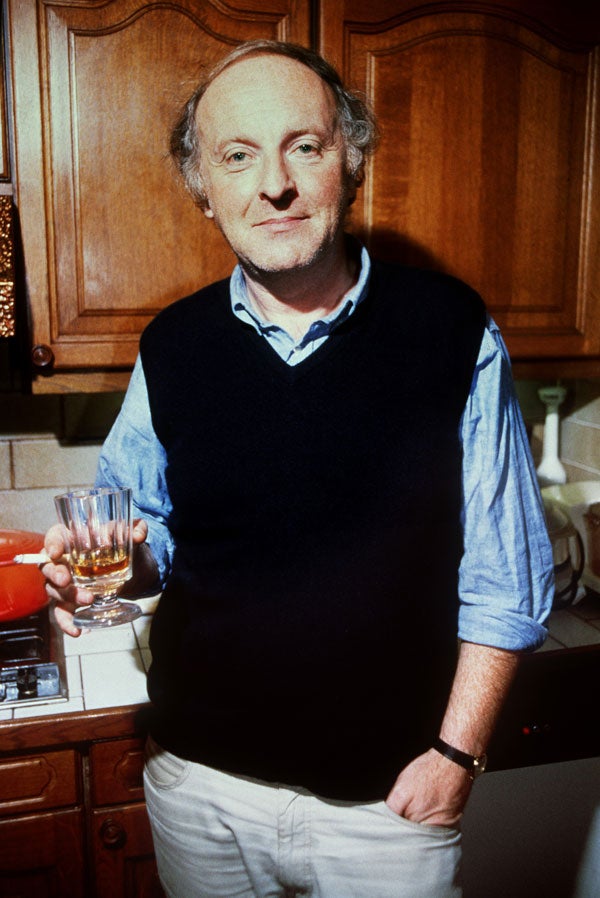Joseph Brodsky: A Literary Life, By Lev Loseff, trans. Jane Ann Miller

Your support helps us to tell the story
From reproductive rights to climate change to Big Tech, The Independent is on the ground when the story is developing. Whether it's investigating the financials of Elon Musk's pro-Trump PAC or producing our latest documentary, 'The A Word', which shines a light on the American women fighting for reproductive rights, we know how important it is to parse out the facts from the messaging.
At such a critical moment in US history, we need reporters on the ground. Your donation allows us to keep sending journalists to speak to both sides of the story.
The Independent is trusted by Americans across the entire political spectrum. And unlike many other quality news outlets, we choose not to lock Americans out of our reporting and analysis with paywalls. We believe quality journalism should be available to everyone, paid for by those who can afford it.
Your support makes all the difference.Joseph Brodsky's observation that what he liked about life in the US was "being left alone to do what I can do" is faintly reminiscent of Philip Larkin's commendation of Hull as "a town that lets you write." In fact, the free-range Russian exile and the travel-shy Englishman share several affinities, including jazz. Lev Loseff records Brodsky's early poetic attempts at creating an effect of improvisation: "I'm a son of the outskirts, the outskirts, the outskirts,/ in a wire cradle, dank hallways, are my door and my address,/ streetcars clanking, rattle bang ring, stone sidewalks, soles,/ girls lined against painted wood fences,/ grassy banks, oil spot/ factory lights" ("Russian Gothic").
Brodsky (unlike Larkin) was cavalier about "the toad, work". He dropped out of school at 15, and hopped from menial job to job before being charged with "parasitism" and despatched to a labour camp near Archangelsk. His real crime, Loseff notes, was that he had broken the rigid rules of initiation into Soviet society. His sentence was commuted after international pressure, and an exit-visa to Israel provided (he changed course at Vienna).
His attachment to a vast range of European literature and his deep individualism seem inevitably to have pointed him west. His youthful poems were published not only in samizdat, but in tamizdat ("over there"). But what mattered to Brodsky far more than ethnicity or country was the Russian language: his only nation-state.
Among his first admirers, a now-elderly Anna Akhamtova addressed him as her equal. Loseff, too, was an early fan. Brodsky had attracted attention as a teenager who irritated Leningrad poetry circles by playing Great Russian Poet. But Loseff was so chastened by the younger man's genius that he temporarily abandoned his literary aspirations, and did not resume work on his own poetry until after Brodsky's emigration. Brodsky realised only when Lev reached the US in 1976 that this old friend, Lev Vladimirovich Lifshits, was none other than the distinguished poet, Lev Loseff.
Loseff, who died in 2009, went on to become professor of Russian at Dartmouth College. He annotated Brodsky's poems and produced several monographs about his work. Mercifully free of sensationalism, his biography is a balanced combination of brotherly understanding and scholarly objectivity. Although informative about the major events of his subject's life, Loseff focuses on Brodsky's poetics and philosophy. The English edition lacks even the numerous photos that brighten the Russian original. Jane Ann Miller's lucid, colloquial, un-rhymed English versions of the poems are an essential accompaniment to Loseff's thoughtful readings.
It was his 1980 volume, A Part of Speech, that brought Brodsky to the excited attention of UK readers. That voice was unique - authoritative, resonant, completely serious about "the stern art of poetry", yet appealingly self-mocking. Brodsky would memorably evoke a scene, then fly above realism with some startling rhetorical flourish: "I was born and grew up in the Baltic marshland by zinc-grey/ breakers that always marched in twos, hence all rhymes". His poetry seemed to modernise the Metaphysicals and add a charming, Audenesque discursiveness. There was a near-English flavour, but more intellectual drive than in most of the home-grown, or even Irish-grown, product. Brodsky at that stage involved American writers in his translation. When he took over the entire task, the results were less happy, as Loseff concedes. Determined to reproduce his original metres and rhymes, he would throw in new metaphors and comic, clunky chimes: "transparence/ larynx", "vomit/ from it", for example ("May 24, 1980").
Loseff suggests that Brodsky's English, for all its fluency, was not quite up to the nuances of poetry translation. I suspect he might still have been influenced by Auden, whose last poems also veer into awkward slanginess. Or perhaps it was simply a language-game: after all, the poems existed invulnerably in Russian. Brodsky's re-creations may have been the overflow of creative exuberance into reckless play.
The poet's English essays are superb, and "It is hard to resist the notion that a more genuine and true translation of Brodsky's poetic universe into English was his prose and not his poetry". Perhaps, but a poem is different from a poetic universe, and Brodsky is a singer before he is a speaker. His poetry needs a new generation of English-language translators. Meanwhile, the author of Brodsky: A Literary Life has accomplished the feat of discussing a poet's work persuasively in a language other than his own, and allowed us to glimpse the unique brilliance of the originals.
Carol Rumens's 'De Chirico's Threads' is published by Seren
Join our commenting forum
Join thought-provoking conversations, follow other Independent readers and see their replies
Comments